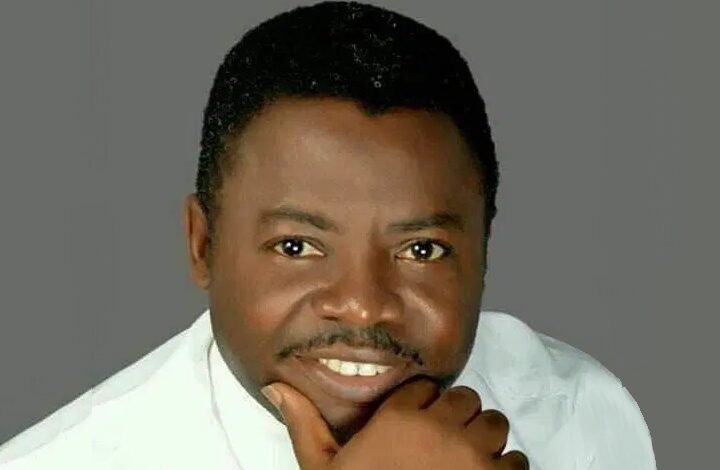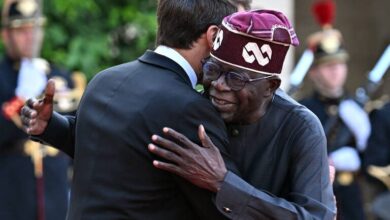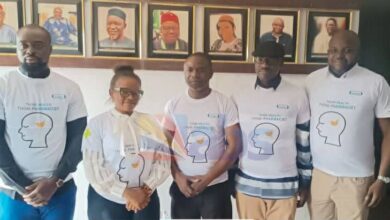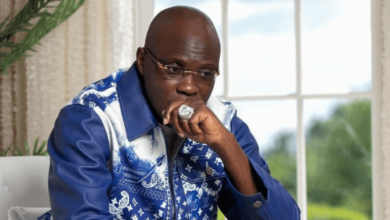Beyond The Rhetoric Of “Christian Genocide”: Our Reality

Our Reality Beyond the Rhetoric of “Christian Genocide”
By Citizen Bolaji O. Akinyemi
After my earlier article, “Muslim/Muslim Ticket: Bearing the Cross of Injustice, Expecting Political Productivity,” and Barr. John Apollos Maton’s analysis titled “Restructuring the Cross: From Religious Lamentation to Constitutional Liberation,” I thought we had done justice to the matter and put it to rest.
However, the recent statement by the Christian Association of Nigeria (CAN)—admitting that killings are ongoing but denying the existence of a Christian genocide—has reignited anger across religious divides. My inbox has been flooded with demands to address CAN’s position.
A Northern Muslim politician, reacting to the development, remarked:
> “The Christians in the North are docile. They have made several attempts to liberate themselves, but each effort is met with crises.
The Northern Christians are designed to be subservient. This age-long agenda is perpetuated through the Emirate system in the North and through lopsided employment recruitment. Northern Christians are living in conquered territories.”
That is not rhetoric but the reality behind why Deborah was stoned to death under the supervision of an educational institution and an indifferent government in Sokoto. The Sokoto ideology seeks to reclaim power from our so-called liberal Muslim president, whose reign has not reduced the killings. Yet, CAN appears willing to continue with a leadership that has failed to protect Christians. What a dilemma indeed.
The Noise and the Numbness
From Washington to Ottawa, foreign legislators and lobbyists now speak more loudly about the “Christian genocide” in Nigeria than many Nigerian pulpits. They cite numbers, pass motions, and threaten sanctions, while thousands of kilometres away, the blood on Africa’s fertile soil still glistens.
Farmers no longer till their fields; hunger has replaced harvest. Yet our lawmakers are too busy unpacking padded budgets to hear the cries from villages while Abuja sleeps securely behind armored gates.
The blood of the innocent has become the ink with which Nigeria’s tragic story is daily rewritten. From Plateau to Benue, from Southern Kaduna to Borno, crosses drip blood and altars turn to ashes.
Ironically, while elected leaders trade silence for political convenience, many anointed of God trade truth for access. The Church—meant to be the nation’s conscience—has become an echo chamber of caution, afraid to offend power while its flock is devoured by wolves.
From Prophets to Protocol Officers
Once, the Church spoke with moral thunder. Across history, men like Martin Luther King Jr. and Archbishop Desmond Tutu faced injustice armed only with conviction. In Nigeria today, Christianity has been reduced to a competition of cathedrals and crusades. The prophetic voice has been replaced by choirs of political convenience.
The rot did not start yesterday. Its seed was sown in the fiery confrontation between Rev. Yakubu Pam and President Olusegun Obasanjo. As Northern Chairman of the Christian Association of Nigeria (CAN), Pam accused the president of indifference to Christian killings. Obasanjo, visibly irritated, barked: “CAN my foot!”—a phrase that immortalized the contempt of political power toward the Church.
That clash marked CAN’s descent from prophecy to politics. The once-moral platform became a bargaining desk for access and appointments. “Northern CAN” and “National CAN” soon divided into factions—one seeking truth, the other proximity to the throne. The tension fractured Christian unity and contributed to the fall of Goodluck Jonathan’s Christian-led government in 2015.
Then came Muhammadu Buhari, who, in political irony, appointed Yakubu Pam—the once-prophet of protest—as Executive Secretary of the Nigerian Christian Pilgrims Commission (NCPC). The lion of resistance became the chaplain of the state.
Fast forward to 2023: another administration, another reward. The loudest defender of the Muslim/Muslim ticket, Bishop Stephen Adegbite, now occupies the same NCPC seat once held by Pam. History repeats itself—proof that political loyalty, not prophetic labour, earns promotion.
So, we must ask: Has the genocide stopped? Have these appointments ended the slaughter in Plateau, Benue, or Southern Kaduna? Have they healed the wounds of widows and orphans—or only healed the Church’s relationship with power?
CAN’s Tragic Drift
The Christian Association of Nigeria now denies any “pattern” in the killings, insisting that bullets do not discriminate. True—but bullets fired in impunity always find the powerless. When the conscience of a nation excuses murder as “patternless,” it becomes complicit in its people’s peril.
CAN was not created to serve presidents; it was created to serve Christians. It was never meant to negotiate for offices but to advocate for life. The NCPC cannot remain a gold medal for political loyalty. The Executive Secretary of a pilgrims’ agency should be a civic appointment, not a reward for ecclesiastical endorsement.
Among the Yoruba, it is said, “Bi òṣà o bá gbé ni, ṣe à sí ṣe ẹni bó ṣé bá à ni”—if a deity will not lift you up, it should at least leave you where it met you. Today’s clergy cult within CAN has lifted a few and left the body of Christ lower than it met it.
Our ecclesiastical hierarchy is heavy on politics, light on purpose. Every election cycle we hear: “Christians are being killed!” Yet once ballots are counted and bishops are courted, silence returns—and the killings continue.
We do not need a negotiating CAN; we need a protective CAN. We do not need bishops who queue at the Villa; we need shepherds who stand in the valley. Nigeria requires a Church that speaks truth to power, not one that waits for power’s permission to speak.
Beyond Outrage: What the Church Must Do
1. Build a Strategic Christian Security and Justice Desk
CAN and its denominational blocs must establish a permanent Security and Justice Commission—not to issue statements, but to collect data, document cases, support victims, and lobby the National Assembly for legislation that protects communities under attack. Documentation is defense; statistics speak louder than lamentation.
2. Forge Alliances Beyond the Pulpit
This is not a Christian-versus-Muslim war; it is a citizens-versus-impunity crisis. Extremists exploit poverty, politics, and failed policing. The Church should collaborate with Muslim clerics, civil-rights groups, and traditional rulers who also crave justice. Joint action can isolate fanatics and compel state accountability.
3. Hold Christian Politicians Accountable
It is not enough that public officers bear Christian names; their policies must bear Christian values—justice, mercy, and integrity. Churches should track performance, publish scorecards, and withdraw endorsement from underperforming “brothers” in office. Representation without righteousness is betrayal.
4. Reclaim the Moral Voice
When prophets grow silent, blood cries louder. The pulpit must again become a platform of truth, not entertainment. Messages that challenge power are not rebellion; they are redemption. A Church that fears losing presidential invitations more than losing its prophetic credibility has already lost both.
5. Transform Outrage into Organization
Every local church can be a cell of civic education and humanitarian response—training volunteers for relief, mediation, and early-warning systems. Tears must turn into tactics; prayers must produce policies.
Why the World Should Listen—but Nigerians Must Lead
Foreign advocates from Bill Maher to Senator Ted Cruz may raise alarms about Christian persecution, but they cannot rescue us from the consequences of our own apathy. External pressure may expose injustice, yet internal courage alone can end it. When outsiders speak louder than our pastors, the world sees our weakness, not their compassion.
America’s sanctions will not save Nigeria; accountability will. What we need is not foreign pity but domestic policy. Let our Senate hold hearings on rural insecurity. Let state assemblies legislate community policing frameworks. Let churches partner with data scientists and media houses to track every incident, name every victim, and follow every case to conviction.
Restoring the Prophetic Mandate
The Church must rediscover its threefold calling: Priesthood, Prophecy, and Policy.
Priesthood comforts the afflicted.
Prophecy confronts the oppressor.
Policy converts compassion into law.
A Church that prays without planning will keep burying its members while waiting for miracles it should manage. Faith without works is dead; faith without justice is deadly.
The Cry That Heaven Hears
“The voice of your brother’s blood cries to me from the ground,” God told Cain. That cry has reached heaven—but has it reached Aso Rock? Has it reached CAN’s executive chambers? Or has it been drowned by the applause of political appointments?
No president will stop the killing if the Church itself prefers comfort to confrontation. Heaven’s intervention waits for earthly obedience. Nigeria’s revival will not begin in crusades; it will begin in courage.
If we will not cry to the Sultan, let us at least cry to our own conscience. For the day we normalize genocide—against Christians, Muslims, or anyone—we crucify humanity again.
Conclusion: A Call to Rise
The blood of believers is not just a Christian tragedy; it is a national indictment. Every bullet fired at a worshiper tears a page from our constitution and our conscience. Unless the Church rises—not to trade influence but to defend faith—the next memorial will not be for victims but for the death of our collective soul.
Our task is clear:
- Silence no more!
- Strategy, not sentiment!!
- Faith that speaks, not fear that negotiates!!!
Only then will Nigeria’s story move beyond the rhetoric of “Christian genocide” to the reality of collective redemption.
Post Views: 35





